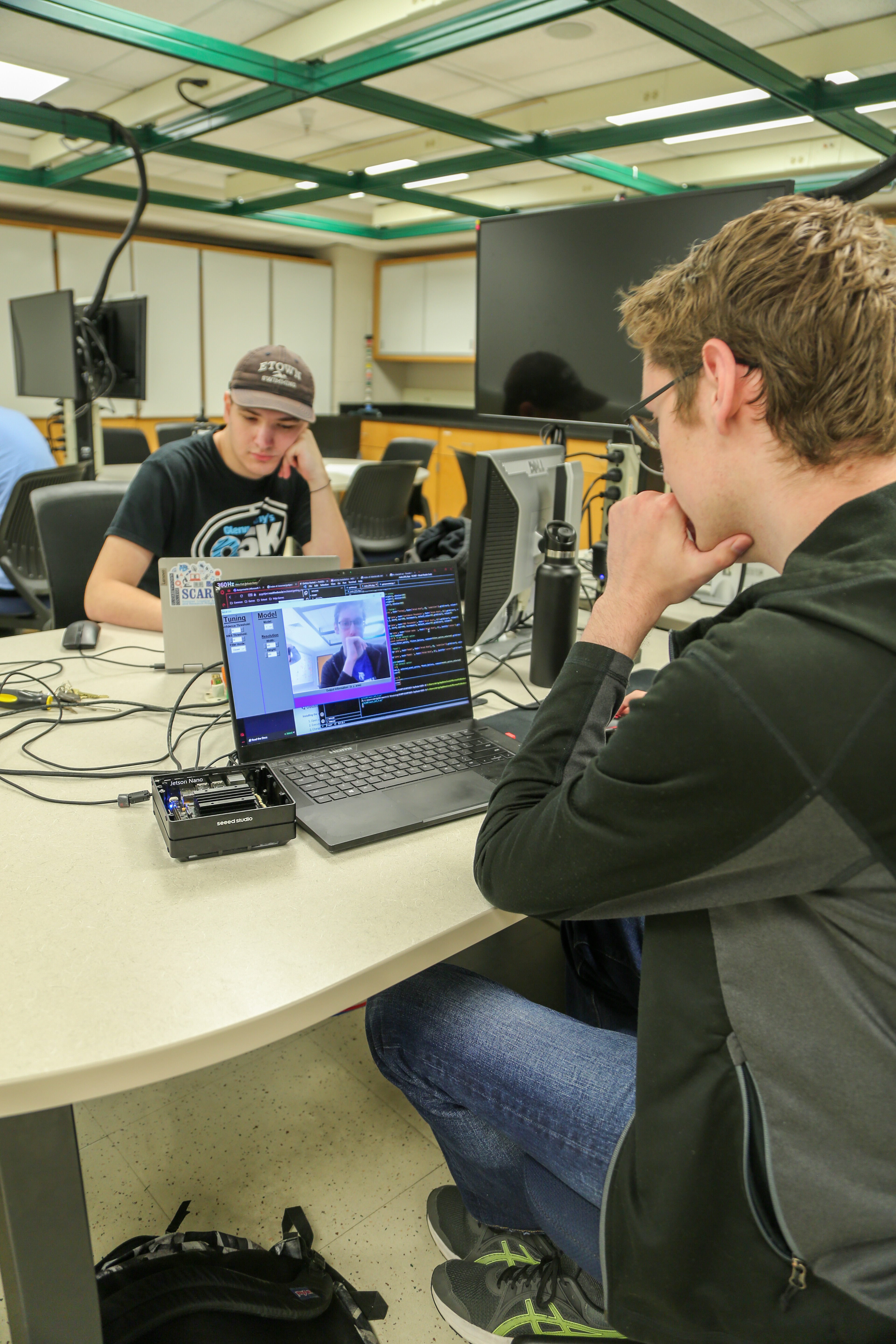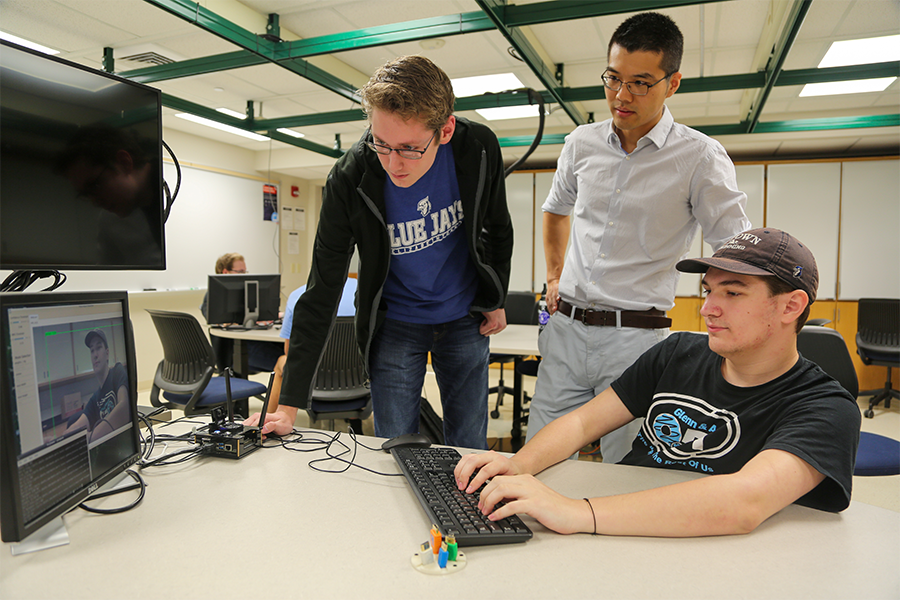Elizabethtown College Biochemistry and Computer Engineering major Nathaniel Brightup ’25 and Mechatronics Engineering major Steven Klinefelter ’25 are spending their summer on campus as part of the Summer Creative Arts and Research Program (SCARP) designing an open source, zero-code artificial intelligence program that will help high school students with limited resources to be able to compete in the international FIRST Robotics Competition (FRC).
Brightup and Klinefelter have been working closely with their Etown faculty mentor, Assistant Professor of Computer Science, Peilong Li on designing the artificial intelligence program that the robots can use in the FRC competition, where teams of high school students are challenged to design, build, and program robots. The program that the two Etown students are designing uses a visual detection system that automatically identifies marked game objects on the competition field such as cones, cubes, or balls. Once they are identified, the robot will automatically proceed to hit a set target.
The ambition of this project is to post the artificial intelligence program onto the FRC public forum for students to use free of charge and apply to their robots as soon as the next competition in January 2024.
Title of Research
Coprocessor-Agonistic, Zero-Code, Vision Processing System for the First Robotics Competition
Student Researcher
Nathaniel Brightup ’25 (Computer Engineering major)
Steven Klinefelter ’25 (Mechatronics Engineering major)
Faculty Mentor
Peilong Li, Assistant Professor of Computer Science
What are you researching?
Brightup: My task is to create a graphic user interface (GUI) for teams to interact with and help them control the elements of backend code, and then work with Steven to integrate the GUI with the backend code.
Klinefelter: Our research is centered around the FIRST Robotics Competition (FRC), and object detection using Yolo (You Only Look Once). We are designing a program that can be run on as many of the popular Co-Processors for FRC such as Nvidia Jetson boards, or Raspberry Pi’s. This program uses Artificial Intelligence (in the form of a retrained Yolo model) to identify game objects. This enables the robot to detect, identify, and interact with these game objects without any human interaction.
Why did you choose this topic?
Brightup: This research seemed like a good opportunity to advance a field that could help a lot of people in the future.
Klinefelter: In high school, I was lucky enough to be introduced to my local FRC team, and it was a life-changing experience. FRC provided me with a place to learn, practice, and display my programming skills as a high school student. My team went out of their way to make me feel at home. From the welcoming mentors to the dedicated students, they provided me with a place where I could discover my passion for robotics. I hope this project will help advance the technology displayed in this competition!
What is the most interesting aspect of this research?
Brightup: I enjoy learning skills that I will be able to use in my future endeavors after college, so I’ve been most interested in advancing my skills in applicable fields.
Klinefelter: Every part of the research has me interested and engaged. Although we are currently in the early stages of the project, I already feel my passion for robotics being reignited, and I didn’t think it could burn any brighter! From working with state-of-the-art Artificial Intelligence to troubleshooting Linux operating systems, the entire project has me excited.
How has your faculty mentor helped you?
Brightup: Dr. Li has helped provide us with supplies, insight, and a structure for our tasks. He has also helped us set up our software with preliminary options to test.
Klinefelter: Dr. Li has been a wonderful mentor. He reminds me of the mentors that we used to have at FRC, passionate, intelligent, and welcoming. From the moment that I approached him with this project idea, he has been dedicated to seeing it come to life. From writing up the final project proposal, recruiting another student, and now guiding us on this project, he always has useful feedback on how we can take it one step further. His teaching style and oversight is a perfect fit for the way I learn, and I’ve already learned so much about the project field from working on it! I couldn’t have asked for a better mentor for this project.
Hear from the staff mentor – Peilong Li
“This is my fifth SCARP project and it allows me to stay up-to-date with the latest developments in the field and collaborate with talented individuals, including both students and fellow faculty members,” Li said. “Being part of a research project ensures that I continue to learn and grow professionally, which benefits both my teaching and personal development.
“The research project aims to democratize AI within the FIRST Robotics Competition, ensuring equity and diversity by providing a no-code and affordable computer vision system. By making AI accessible to students from various educational backgrounds, the project levels the playing field, empowering participants to leverage cutting-edge AI technologies and gain a competitive edge.”

